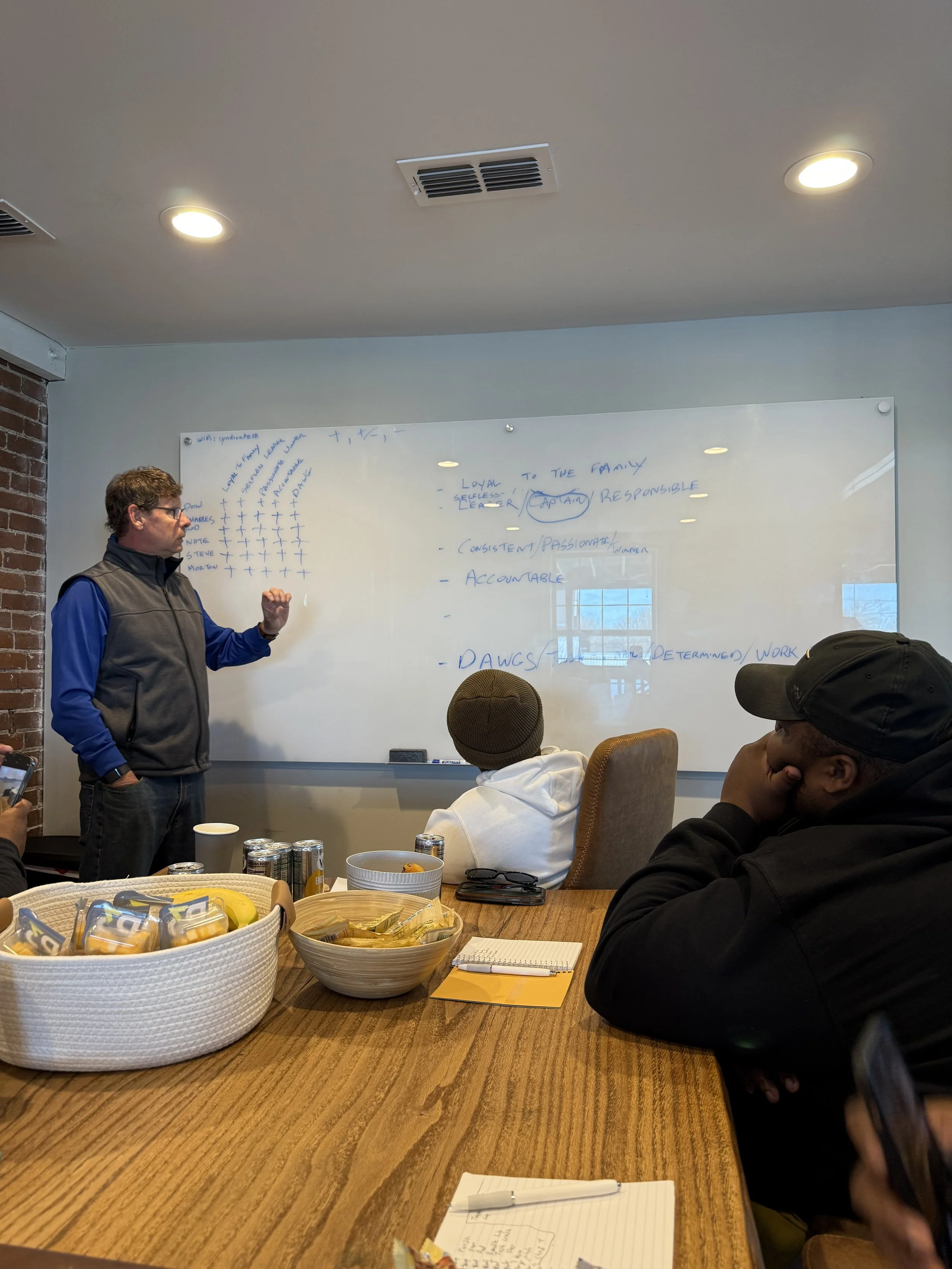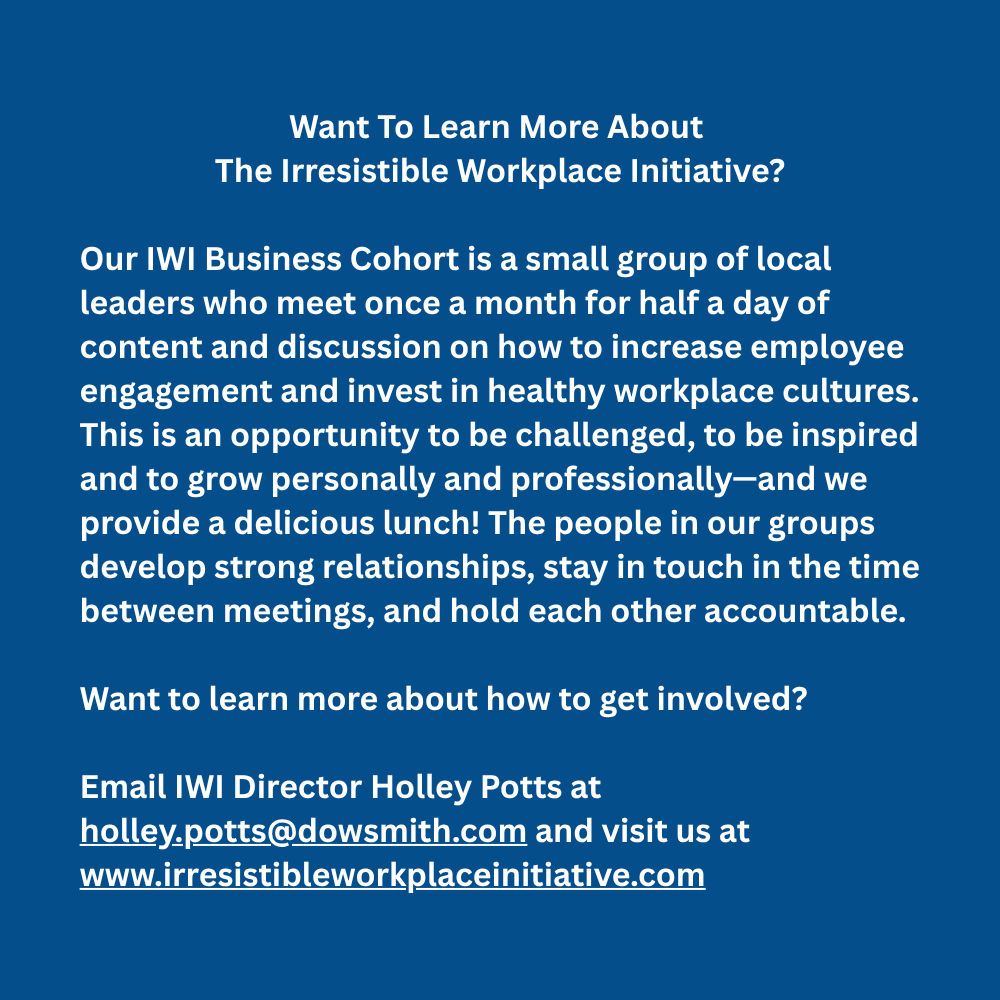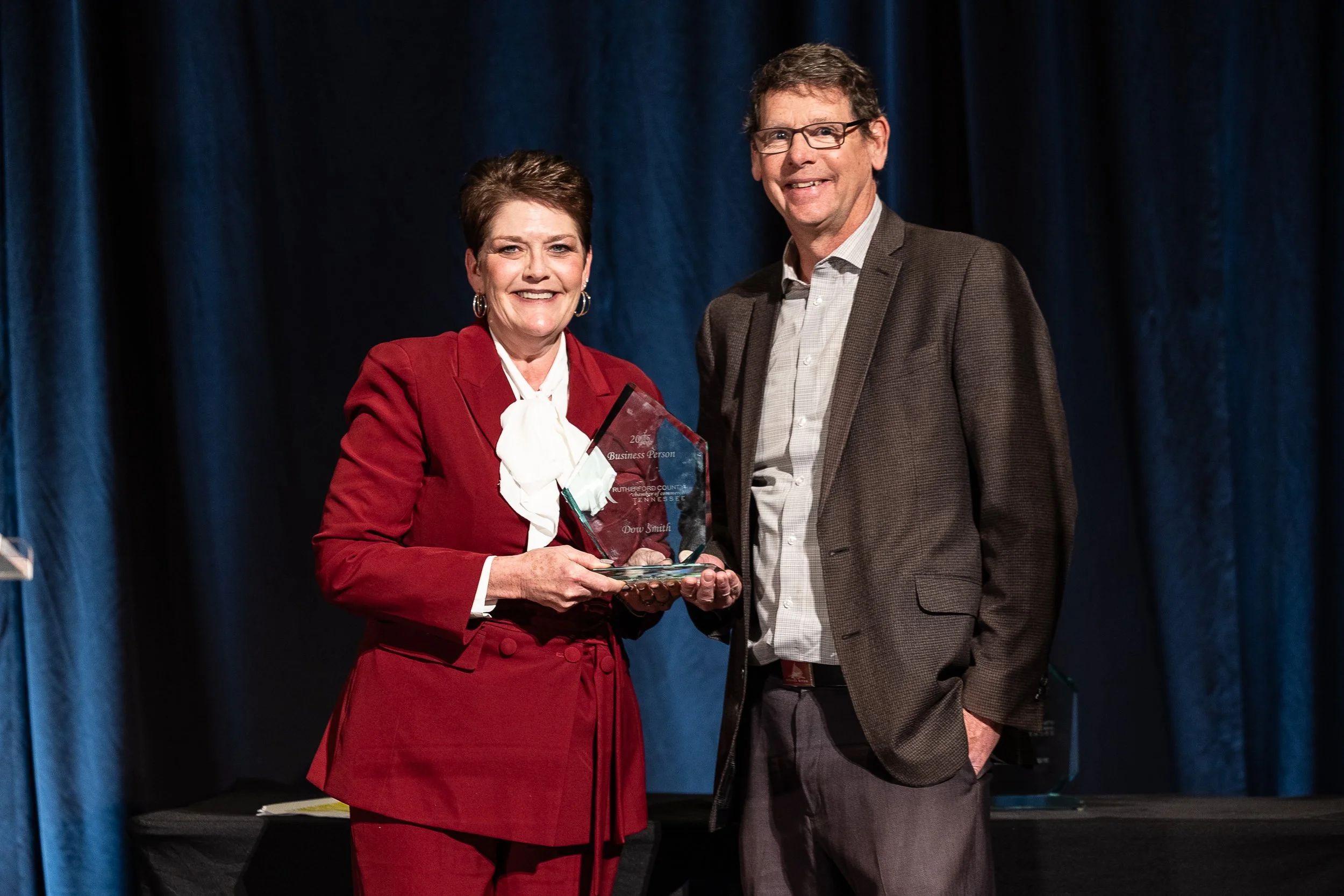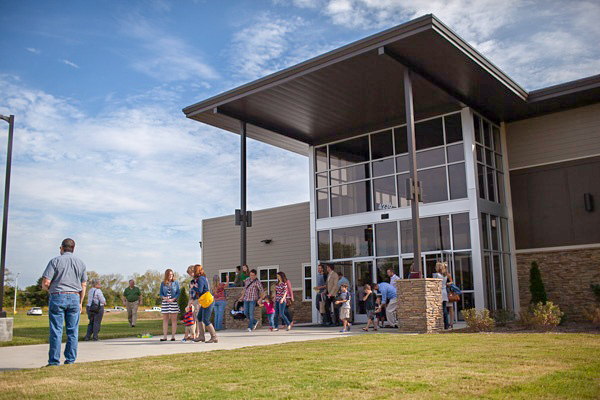DSC Visionary Dow Smith speaks with an organization about improving their company culture.
Did you know that disengaged employees cost the global economy $8.9 trillion every year? According to Gallup’s State of the Global Workplace report, employee engagement plays a significant role in overall life experiences. When it comes to well-being items such as stress, anger, worry, and loneliness, being actively disengaged at work is the same as—or even worse than—being unemployed.
The Irresistible Workplace Initiative (IWI) is an organization that specializes in consulting and connecting small businesses in an effort to increase employee engagement and define company culture.
IWI is the vision of Dow Smith, whose Middle Tennessee design-build firm is thriving after more than 30 years in business. IWI works with business leaders to assess their companies’ strengths and weaknesses, develop and implement strategies for long-term success, and provide opportunities to learn from peers.
We believe every individual and every company has unique abilities, and it is our mission to bring the best out of everyone at every level. We do this through a personalized approach that includes an in-depth survey, open and honest feedback, and proven tools for growth. We work alongside companies to provide guidance, training, and communication to make them more effective at reaching their employees, clients, and communities.
We know that company culture and employee engagement are just as critical to a company’s success as every other facet of the business.
Here’s why:
Engaged employees are productive employees. Employee engagement is a critical driver of productivity within any organization. When employees are engaged, they feel a strong emotional connection to their work, their team, and the company's mission. This connection translates into a heightened sense of purpose and motivation, leading to increased effort and better performance. Engaged employees are more likely to be proactive, innovative, and committed to achieving organizational goals. They take ownership of their tasks, actively seek solutions to challenges, and are more resilient in the face of setbacks. This intrinsic motivation fosters a culture of continuous improvement and efficiency. Furthermore, highly engaged teams often exhibit lower absenteeism and turnover rates, reducing recruitment and training costs and maintaining a consistent, experienced workforce.
Employee retention is expensive, but not as costly as finding a replacement. We sometimes hear from business leaders that they don’t want to give raises, offer bonuses, or provide perks. But when they have a qualified, dedicated person in a key position, we’ve found that the cost of replacing that person is going to be much higher than doing the necessary things to keep them engaged and fulfilled. According to Gallup, finding a replacement can range from one-half to two times the employee's annual salary. In many cases, this is a preventable problem. While some leaders will watch an employee leave and chalk it up to inevitable churn, Gallup’s data shows that more than half of voluntarily exiting employees say their manager or organization could have done something to prevent them from leaving their job.
Your company’s culture can be your competitive advantage. In 2025, company culture has become more than a buzzword. A strong culture is essential for attracting and retaining top talent, as a significant majority of employees consider it before applying for a job, with many valuing it more than salary. In a competitive talent market, a positive work environment is a key differentiator. Organizations that intentionally cultivate a positive and supportive environment are better positioned for sustained growth and long-term success.
Company culture is about more than pizza parties and wearing jeans on Fridays. Companies that foster psychological safety and encourage open communication see greater innovation, as employees are more willing to share ideas and take calculated risks. Furthermore, a strong organizational culture builds resilience, enabling companies to adapt to challenges and navigate change more effectively. Ultimately, in today's business landscape, a thriving company culture is not just a "nice-to-have" but a fundamental component of long-term success. It influences everything from employee retention and brand reputation to financial performance.





